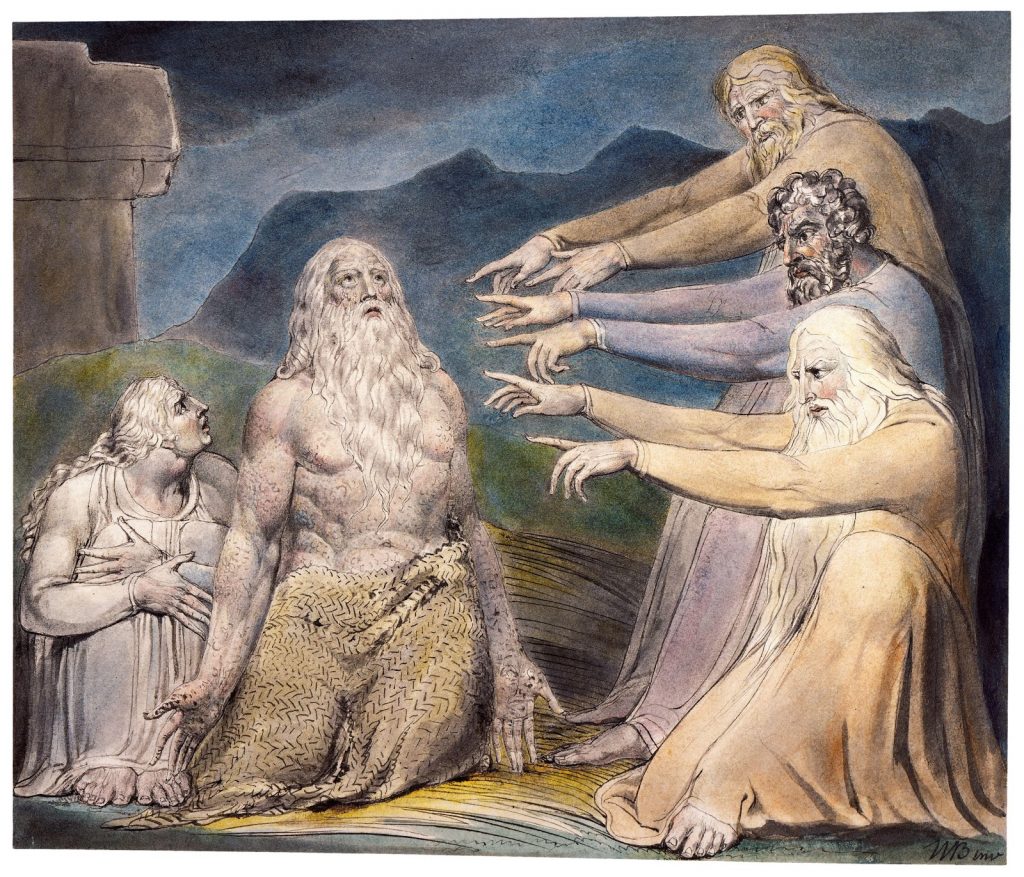
We introduced this series in the previous post. Simon Gathercole begins his case with Galatians 4:4 where we read that God sent his Son, “born of a woman, born under the law”. To Gathercole, the meaning of the verse is obvious:
In Galatians 4, Paul says that God sent his son, ‘born from a woman’ (γενόμενον ἐκ γυναικός, 4.4). It is hard to imagine a clearer statement of Jesus’ humanity. This phrase, and others very like it, are commonly used as synonyms for ‘human being’. (186)
To drive the point home he cites “poetic parallels” in the Book of Job and Sirach.
‘But man (ἄνθρωπος) vainly buoys himself up with words; a mortal born of woman (γεννητὸς γυναικός) like an ass in the desert.’ (Job 11.12)
‘Mortal man, born of woman (βροτὸς γὰρ γεννητὸς γυναικός), is of few days and full of trouble.’ (Job 14.1)
‘What is mortal man (βροτός), that he could be pure, or one born of woman (γεννητὸς γυναικός), that he could be righteous?’ (Job 15.14)
‘How then can a mortal (βροτός) be righteous before God?
How can one born of woman (γεννητὸς γυναικός) be pure?’ (Job 25.4)‘Pride was not created for human beings (ἀνθρώποις), or violent anger for those born of women (γεννήμασιν γυναικῶν).’ (Sir. 10.18)
I have highlighted the instances of “born” and the Greek original in each case for reasons that will become clear.
Gathercole cites another instance of the idiom in the apocryphal literature:
A variation on the idiom also appears in the Life of Adam and Eve, or Apocalypse of Moses. Here Eve has a vision of heaven and looks at what is impossible for ‘anyone born from a womb’ (τινα γεννηθέντα ἀπὸ κοιλίας) to see (Ap. Mos. 33.2).
Though we have here a “variation” in the form of the verb gennao we should at the same time note that it is a form of the same verb used, gennao.
And then we have the expression in the gospels of Matthew and Luke:
In the New Testament, the phrase appears in Matthew-Luke parallel material. In Luke’s version, Jesus says: ‘I tell you, among those born of women (ἐν γεννητοῖς γυναικῶν) there is no one greater than John.’ (Lk. 7.28). The same phrase ἐν γεννητοῖς γυναικῶν also appears in Matthew (11.11). The Synoptic formulation here is the same as LXX Job’s except that Job’s are all singular, and Matthew and Luke have the plural.18
Footnote #18 directs readers to Daniel Gullotta’s list of non-Greek and later uses of the expression, so it is appropriate that at this point for me to direct readers to my own analysis of Gullotta’s specific claims: 10. Gullotta’s review of Carrier’s argument #2: relating to Jesus’ birth and humanity.
Gathercole underscores the relevance and force of this expression “born of a woman” (my bolding):
It can hardly be doubted, however, that Paul makes here an indisputable claim about Jesus’ human birth. The only real solution for the mythicist is to regard ‘born from a woman’ as an interpolation.19
——
19 Thus, Doherty, Jesus – Neither God nor Man, pp. 795–798 (epub edition).
That reference to Earl Doherty, implying he could only “get around” the clear meaning of this verse was to declare the passage to be an interpolation, was not how I remembered reading Doherty’s argument at all. After re-reading the relevant chapter I have to say that Gathercole has somehow inadvertently misrepresented Doherty’s argument. In fairness to Doherty I think we should take a little time to set out what he does in fact say on pages 197 to 212 (hard copy edition) of Jesus, Neither God Nor Man, chapter 15.
Not only has Doherty’s discussion been misrepresented by such a dismissal but its main pillars have been entirely swept out of sight. Gathercole explains that he is presenting a “thought experiment” by focusing on what we can learn from Paul’s letters alone, but in doing so he has entirely overlooked the most significant parts of Paul’s letters that are addressed by mythicists. Recall Mark Goodacre’s observation of this method the context of another debate:
I don’t think Gathercole is deliberately suppressing Doherty’s argument; I think, rather, that he can see only those passages in Paul that he finds supportive of his own larger understanding, and that perhaps he finds it difficult to really focus and concentrate when his eyes hit pages presenting a quite different perspective undermining what he and his peers have always accepted. Roger Pearse, for instance, goes even further and without any suggestion that he is aware of Doherty’s arguments says they are “all nonsense, of course.”
I will attempt to present Doherty’s key points in précis or note form interspersed with quotations. I trust readers will realize I am compressing much explanation that needs to be read in the book itself. There is still online an earlier version of the published chapter, Supplementary Article No. 15 – “Born of a Woman”? Reexamining Galatians 4:4 so readers who do not have Doherty’s book and who want to look further into some of my summaries will probably find fuller explanations there. I trust at least the summaries I present will be enough to demonstrate the failure of yet one more reviewer to engage with mythicist arguments, instead dismissing them with misleading comments.
Here is how Earl Doherty opens his discussion headed “Born of Woman”? Continue reading “Addressing S. Gathercole’s Case for Jesus’ Humanity: “Born from a Woman” (#2)”
